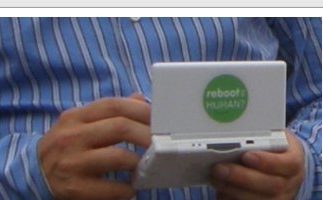When “Sergei and Larry” approached Yahoo with a brand new concept of a “search engine”, they discovered, to their dismay, that Yahoo wasn’t really interested in “search”, but in selling ads. So Google was born.
How I discovered Google
In 1998 I was doing a search of myself, e.g. ego-surfing, using my preferred search engine, Lycos, and I was stunned to see that the top hits were Usenet groups that contained my name, several of them in fact, but worse: they had names like kimbach.slut.slut.slut etc.
I was a bit upset, especially since I, at that point, was being sued over violation of the marketing law by a former employer – a case that was later thrown out – but I assumed that they might have created those groups, to slander me, and I was quite sure that it wasn’t me that created those groups ;-).
I took a look at the content of the groups, and they had very low traffic, I only found some spam, which was rare in 1998, and someone who asked the question “who is Kim Bach” – a question I’ve pondered myself, but it didn’t look like it had anything to do with me.
Eventually I contacted the hotline of my ISP, Image Scandinavia, and they referred me to…GOOGLE.
Doing a search on Google, I realised that it had nothing to do with me, but that the groups had been created by a disgruntled husband, and Kim Bach was his ex-wife!
I also believe that using Google for the first time, immediately made me drop Lycos. At that point Lycos actually yielded what I’d label “better results”, but that changed quickly.
Google, originally, cracked “the search code”, and the world changed.
How I discovered Wikipedia
This I also remember clearly, and it’s quite interesting, I googled it – indirectly!
3-4 years ago I was trying find the English word for the type of dog, that is called “gravhund” in Danish, I somehow 😉 knew that a literal translation wouldn’t do, since that would have yielded “diggingdog”, “digdog”, “gravedog”.
So a Google search let me to the English Wikipedia article for Dachshund, and that was what I was looking for!
Seeing Wikipedia was an instant eye-opener, and at that point it hadn’t even dawned upon me, that Wikipedia was pure user-generated content!
Google isn’t interested in “knowledge”
Google won by doing a better job, but now “we, the people” are approaching the world with a concept of a “knowledge engine”, only to discover, to our dismay, that for instance Google isn’t really interested in “knowledge”, but in selling ads.
The difference: “we, the people”, will, surprisingly, transform Google from a “search engine” into a “knowledge engine” as well, no matter what Google does. The algorithm Google uses will give preference to “quality”, at least in the long run, and since “we, the people” are so numerous this will happen sooner rather than later.
Case in point, the best SEO strategy I know of is to create a Wikipedia article, try googling the terms I’ve created Wikipedia articles for (for instance: Kim Schumacher, DB03 and DB07).
You’re brainwashed
Google and the big companies have had us, pretty much, brainwashed to think that we have no say. This is reflected by the response to the launch of the Wikia Search engine, on the historic day, January 7th 2008.
Everyone is trying to compare Wikia Search to Google, and that’s missing the point COMPLETELY, and people should read what Wikia Search are writing:
WE KNOW THAT THE QUALITY OF THE SEARCH IS: “PRETTY LOW” (a polite way of saying that it “stinks”)
The way to help change it, is simply to get involved.
Every-time you do a search on Wikia Search, you’re offered the option to edit a “Mini Article” on the search. A “Mini Article” is just a Wiki article, that explains the search term. The “Mini Articles” will be used to improve the search index.
“Unfortunately” people seems to have been using a search on themselves as a benchmark, meaning that a lot of the “Mini Articles” are links to private and small web-sites, but that reflects the community.
Ego-surfing was also one of the first things I did, and the first hit that could be attributed to me was result number 8, and that yielded the photos I’ve taken, that are in the Flickr pool I created for Sjakket, my former place of work.
Is that my major contribution to the world? Well it’s not that far from it, bordering that I believe that it could be.
Getting involved – choose a community to “work” for
My criteria are:
Not for profit, open, free, strong community, sustainable.
The beer isn’t free however, so you’re allowed to make money, but take into consideration how the money is being made, if it is sustainable etc.
Personally I’ve chosen these organisations
- Kim Bach . Org – My personal Internet presence with community support (some call that a blog ;-))
- Netværksgruppen i Mjølnerparken – Volunteer to help inner city kids, of non-danish descent, with their homework
- Æbletræet.dk – A Wiki-based community site dedicated to serving Apple users with content in the Danish Language
- Wikipedia – The open encyclopaedia
- Wikia Search – The open search engine
Currently I’m mostly involved in Wikia Search, I’ve found it really intimidating to be a contributor to an Encyclopaedia, so my contributions to Wikipedia have been quite limited, Wikia Search is much less intimidating, and right up my alley.
Where would you put your money (e.g. time)?
In ten years, Google has gone from no to 16.000 employees, but “we, the people” will, in ten years go from no to 6,5 billion, or how many it is that “we” are in 2018.
Where would you put you money (e.g. time)? It will only cost you time, and you’ll be involved in building a beautiful shrine to knowledge and human achievement.
Together we’ll do Google one better: crack the code of “knowledge”, and the world has changed forever.
Free at last, free at last, oh God almighty we’re free at last.
And “we”‘re hiring! No need to submit a resume, come join the fight!
Read more here:

